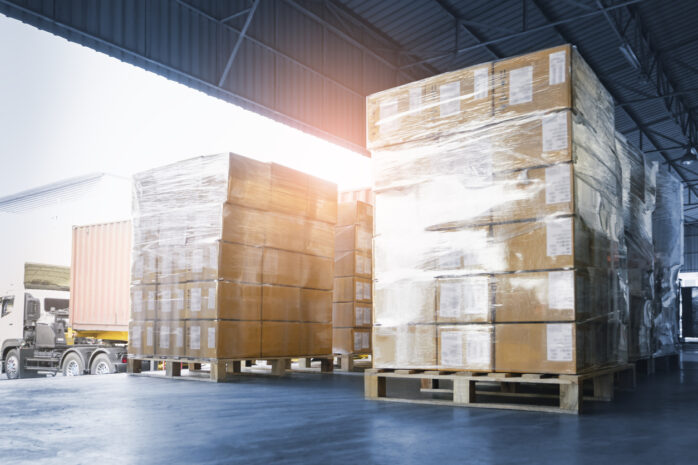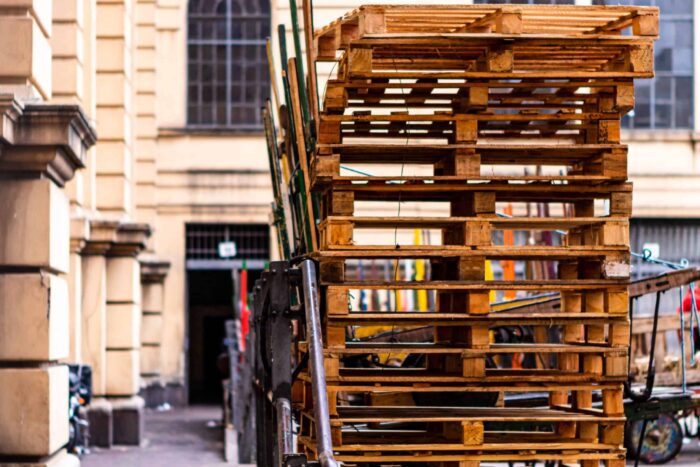
With an intricate web of regulations, transportation methods, and customs procedures, ensuring a smooth and efficient shipping process is crucial for maintaining a competitive edge in today’s global market. As specialists in shipping commercial B2B freight to and from the UK, we are well-versed in the nuances of European pallet shipping, offering expertise in this essential business function. In this comprehensive guide, we will dissect the intricacies of road freight transportation to Belgium, ensuring you are well-equipped to make informed decisions for your business’s logistical needs. Navigating the complexities of European pallet shipping to Belgium can be a daunting task for British business owners who are new to the international freight forwarding arena.
Moreover, we will delve into the importance of choosing the right road freight service and the significance of understanding customs clearance and regulatory compliance, providing valuable insights to streamline your shipping operations and bolster your business’s position in the international market.
Road Freight Options: Choosing the Right Service for Your Pallet Shipping Needs

Selecting the most suitable road freight service for your pallet shipping requirements is paramount in ensuring efficiency and cost-effectiveness. Barrington Freight, as a proud member of BIFA and FIATA, offers a range of road freight services tailored to diverse business needs. When shipping pallets to Belgium, you can choose between groupage, full loads or part load options, depending on the volume and frequency of your shipments.
Full loads are ideal for larger consignments, allowing you to reserve an entire truck for your cargo. This option ensures faster transit times and enhanced security, as there is no need for cargo consolidation or deconsolidation. Conversely, par loads are the optimal choice for smaller consignments, enabling you to share truck space with other shippers, thereby reducing costs. However, part loads may entail longer transit times due to multiple stops for loading and unloading.
Selecting the right road freight service is contingent upon a thorough evaluation of your cargo size, shipping frequency, and budgetary constraints. By aligning your logistical needs with the appropriate service, you can optimise efficiency and cost-effectiveness in your pallet shipping endeavours. Furthermore, it is vital to consider the specific characteristics of your cargo, such as fragility, perishability, or special handling requirements. Each shipment may necessitate tailored solutions, and partnering with an experienced freight forwarder can ensure that these unique needs are met. As your business evolves, remaining adaptable and responsive to changing shipping requirements will enable you to maintain a competitive edge in the global market, maximising the benefits of your road freight strategy to Belgium.
Navigating Customs Clearance and Regulatory Compliance in Belgium

A critical aspect of shipping pallets to Belgium is ensuring compliance with the country’s customs regulations and procedures. As a member of the European Union, Belgium adheres to the Union Customs Code (UCC), which outlines the rules and processes governing the import and export of goods within the EU. It is crucial to familiarise yourself with these regulations and to engage a reputable freight forwarder, such as us, to guide you through the intricacies of the customs clearance process.
To facilitate seamless customs clearance, ensure that you have the necessary documentation, including a commercial invoice, packing list, and a Certificate of Origin (if required). Additionally, your goods must be correctly classified using the Harmonised System (HS) codes, which determine the applicable customs duties and taxes. Failure to comply with these requirements may result in delays, fines, or even seizure of your goods.
Furthermore, it is essential to be aware of any industry-specific regulations or requirements that may apply to your shipments. For instance, shipping food products, hazardous materials, or pharmaceuticals may necessitate additional documentation and certifications. To ensure compliance with these sector-specific rules, partnering with a knowledgeable freight forwarder is invaluable. Their expertise and experience in handling various types of cargo can assist you in meeting the stringent standards imposed by regulatory authorities.
Another essential consideration when shipping pallets to Belgium is understanding the country’s value-added tax (VAT) system. Depending on the nature of your goods and your business, you may be subject to VAT charges upon importation. Knowledge of the Belgian VAT system, including registration, filing, and payment requirements, is critical to avoiding unnecessary expenses and potential penalties.
Lastly, staying informed about any changes in customs regulations or trade agreements between the UK and Belgium is crucial to maintaining a compliant and efficient shipping process. Monitoring updates from relevant government authorities or industry associations, such as BIFA and FIATA, can help you stay abreast of any developments that may impact your pallet shipping operations.
Navigating the Legal Landscape
Understanding the legal framework governing export and import is crucial. For British businesses engaging in pallet shipping to Belgium, this means navigating a complex set of regulations that have been significantly influenced by recent political shifts, most notably Brexit
Belgium’s Export and Import Regulations
Belgium, as a central hub in the European Union, adheres to a comprehensive set of rules and regulations for importing goods. These regulations are designed to ensure safety, compliance, and fair trade. For British exporters, it’s essential to understand these rules to avoid legal pitfalls. Key aspects include product standards, safety regulations, and environmental guidelines. Ensuring that your goods meet these standards is not just a legal requirement but also a mark of quality that can enhance your brand’s reputation in the European market.
The Impact of Brexit on UK-Belgium Trade
Brexit has introduced a new dimension to the UK-EU trade relationship. British businesses must now navigate a changed landscape where once seamless transactions are subject to customs checks and additional documentation. It’s vital to understand the new customs processes, tariff implications, and potential delays. Staying informed about trade agreement updates between the UK and Belgium is crucial for adapting strategies and mitigating risks associated with these changes.
Ensuring the Safe and Secure Transportation of Pallets to Belgium

Safeguarding the integrity of your cargo throughout the transportation process is essential for maintaining customer satisfaction and preserving your company’s reputation. When shipping pallets to Belgium, it is crucial to implement measures that ensure the safe and secure transit of your goods. Implementing appropriate packing and loading techniques, utilising suitable pallets, and employing cargo insurance are all vital aspects of a robust shipping strategy.
To begin with, proper packing is fundamental in protecting your goods from damage during transit. Utilise quality packing materials, such as sturdy boxes and adequate cushioning, to shield your items from potential impacts, vibrations, or adverse weather conditions. Furthermore, correctly stacking and securing your goods on the pallet can prevent shifting or toppling during transportation.
Selecting the right pallets for your cargo is equally important. Consider factors such as weight capacity, material, and dimensions when choosing the most suitable pallets for your goods. Opting for pallets that comply with the International Organization for Standardization (ISO) or European Pallet Association (EPAL) standards will further enhance the security of your shipments.
Lastly, obtaining cargo insurance can provide peace of mind and financial protection in the event of unexpected incidents, such as theft, damage, or loss. Engaging a freight forwarder, which possesses a deep understanding of the industry’s best practices, can guide you in selecting the appropriate insurance coverage for your shipments to Belgium.
By implementing these safety and security measures, British business owners can have confidence in the successful delivery of their pallets to Belgium, fostering strong business relationships and promoting continued growth in the global market.
In conclusion, navigating the complexities of European pallet shipping to Belgium demands a thorough understanding of road freight options and customs regulations. By partnering with an experienced freight forwarder, British business owners can ensure a smooth and efficient shipping process, bolstering their competitive edge in the global market. With the guidance provided in this comprehensive guide, you are well-equipped to make informed decisions regarding your pallet shipping needs to Belgium.











